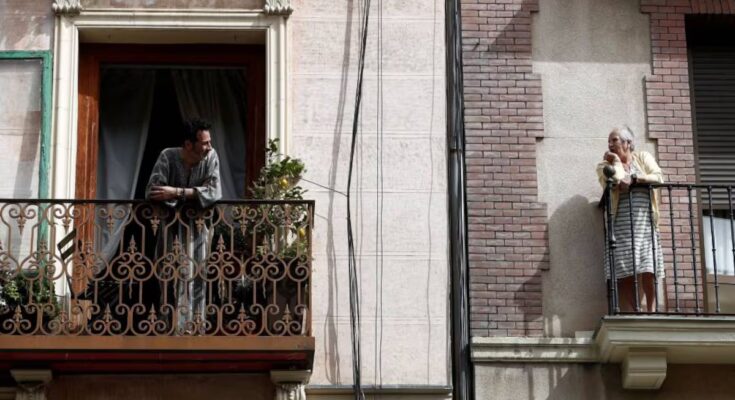Yesterday I remembered Ana. It was the kindness and generosity embodied in the upstairs neighbor. The door was always open and a hot dish on the table. More than my friend’s grandmother, she was my family’s friend. He even prepared a room for us in hopes that we would renovate our apartment and not move. Today Ana is not here and I live in a big city. I don’t know the name of any of my neighbors except the owner of all the property in the building. With a lot of effort I exchange a timid conversation with the older people on the portal; only with those who wonder who the new faces are who leave as soon as they arrive. And this curiosity is normal: my roommate and I also comment on the unknown faces that pass by. They tell me that networks of support between strangers in such a disconnected world are not normal. And I wonder how anyone can bear the existential burden without a minimal sense of community. Anyone else remember the upstairs neighbor today?
Unai Sarriés Serrano. Barcelona
A binary society
Immersed in a reductionist process, our society is becoming increasingly polarized, in a way that forces its citizens to situate themselves ideologically in a mathematically binary way, in two unique watertight compartments with no room for the slightest nuance or discrepancy. It is frowned upon for anyone to deviate even slightly from the default ideology, because otherwise they are classified, in a dangerously tribal way, as an extremist enemy (one can imagine countless adjectives currently in use). This leads us to be increasingly intransigent with those who deviate even slightly from the pre-established doctrine, creating individuals who are less critical, intellectually poorer and tremendously amorphous and flat; since it generates fertile ground for the expansion of all types of totalitarianism or fanaticism.
Carlos Rivas Martinez. Madrid
From scale to pore
For years the ideal was to wear one size fits all. Today, for Generation Z, the goal is flawless skin. The scenario has changed (from the body to the face), but not the pressure. You don’t count calories anymore: you count steps skin care, layers of sera and gadgets “essential”. The slogan has also changed. Before: “Lose weight to please.” Now: “Take care of yourself to love yourself”. Beneath the softness, the same logic: controlling the body as a measure of value. And a sector that exploits insecurities sells the perfection possible… always with an extra product. There is an uncomfortable silence: packaging piling up, ingredients destroying ecosystems, chemicals ending up in the sea. The industry that promises purity leaves dirty traces. This is not about demonizing creams. The problem begins when care becomes surveillance and the beauty case grows more than self-esteem. The thinness of Millennials and the crystalline skin of Gen Z: different dress, same cage. Is it freedom if we simply change our obsession?
Fiona Dobal. Madrid



